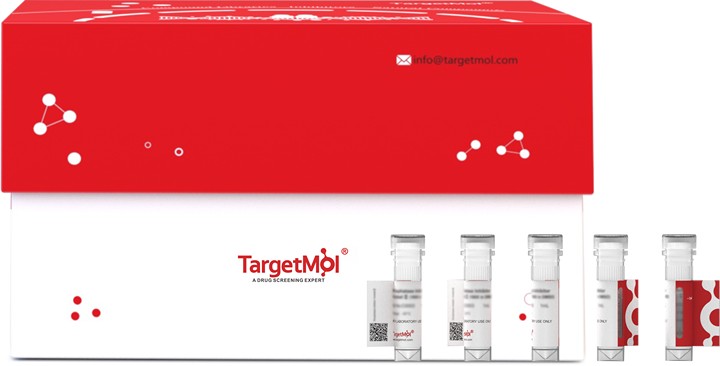Shopping Cart
Remove All Your shopping cart is currently empty
Your shopping cart is currently empty
ATP5F1B Protein, Rat, Recombinant (His & Myc) is expressed in E. coli expression system with N-10xHis and C-Myc tag. The predicted molecular weight is 59.2 kDa and the accession number is P10719.

| Pack Size | Price | USA Warehouse | Global Warehouse | Quantity |
|---|---|---|---|---|
| 5 μg | $129 | 20 days | 20 days | |
| 10 μg | $216 | 20 days | 20 days | |
| 20 μg | $360 | 20 days | 20 days | |
| 50 μg | $543 | 20 days | 20 days | |
| 100 μg | $745 | 20 days | 20 days | |
| 200 μg | $1,070 | 20 days | 20 days | |
| 500 μg | $1,730 | 20 days | 20 days | |
| 1 mg | $2,530 | 20 days | 20 days |
| Biological Activity | Activity has not been tested. It is theoretically active, but we cannot guarantee it. If you require protein activity, we recommend choosing the eukaryotic expression version first. |
| Description | ATP5F1B Protein, Rat, Recombinant (His & Myc) is expressed in E. coli expression system with N-10xHis and C-Myc tag. The predicted molecular weight is 59.2 kDa and the accession number is P10719. |
| Species | Rat |
| Expression System | E. coli |
| Tag | N-10xHis, C-Myc |
| Accession Number | P10719 |
| Synonyms | mitochondrial,Atp5f1b,Atp5b,ATP synthase subunit beta, mitochondrial,ATP synthase F1 subunit beta |
| Amino Acid | AAQSSAAPKAGTATGQIVAVIGAVVDVQFDEGLPPILNALEVQGRESRLVLEVAQHLGESTVRTIAMDGTEGLVRGQKVLDSGAPIKIPVGPETLGRIMNVIGEPIDERGPIKTKQFAPIHAEAPEFIEMSVEQEILVTGIKVVDLLAPYAKGGKIGLFGGAGVGKTVLIMELINNVAKAHGGYSVFAGVGERTREGNDLYHEMIESGVINLKDATSKVALVYGQMNEPPGARARVALTGLTVAEYFRDQEGQDVLLFIDNIFRFTQAGSEVSALLGRIPSAVGYQPTLATDMGTMQERITTTKKGSITSVQAIYVPADDLTDPAPATTFAHLDATTVLSRAIAELGIYPAVDPLDSTSRIMDPNIVGSEHYDVARGVQKILQDYKSLQDIIAILGMDELSEEDKLTVSRARKIQRFLSQPFQVAEVFTGHMGKLVPLKETIKGFQQILAGDYDHLPEQAFYMVGPIEEAVAKADKLAEEHGS |
| Construction | 47-529 aa |
| Protein Purity | > 85% as determined by SDS-PAGE. |
| Molecular Weight | 59.2 kDa (predicted) |
| Endotoxin | < 1.0 EU/μg of the protein as determined by the LAL method. |
| Formulation | Tris-based buffer, 50% glycerol |
| Reconstitution | A Certificate of Analysis (CoA) containing reconstitution instructions is included with the products. Please refer to the CoA for detailed information. |
| Stability & Storage | Lyophilized powders can be stably stored for over 12 months, while liquid products can be stored for 6-12 months at -80°C. For reconstituted protein solutions, the solution can be stored at -20°C to -80°C for at least 3 months. Please avoid multiple freeze-thaw cycles and store products in aliquots. |
| Shipping | In general, Lyophilized powders are shipping with blue ice. Solutions are shipping with dry ice. |
| Research Background | Mitochondrial membrane ATP synthase (F(1)F(0) ATP synthase or Complex V) produces ATP from ADP in the presence of a proton gradient across the membrane which is generated by electron transport complexes of the respiratory chain. F-type ATPases consist of two structural domains, F(1) - containing the extramembraneous catalytic core, and F(0) - containing the membrane proton channel, linked together by a central stalk and a peripheral stalk. During catalysis, ATP synthesis in the catalytic domain of F(1) is coupled via a rotary mechanism of the central stalk subunits to proton translocation. Subunits alpha and beta form the catalytic core in F(1). Rotation of the central stalk against the surrounding alpha(3)beta(3) subunits leads to hydrolysis of ATP in three separate catalytic sites on the beta subunits. |
| Size | Quantity | Unit Price | Amount | Operation |
|---|

Copyright © 2015-2026 TargetMol Chemicals Inc. All Rights Reserved.